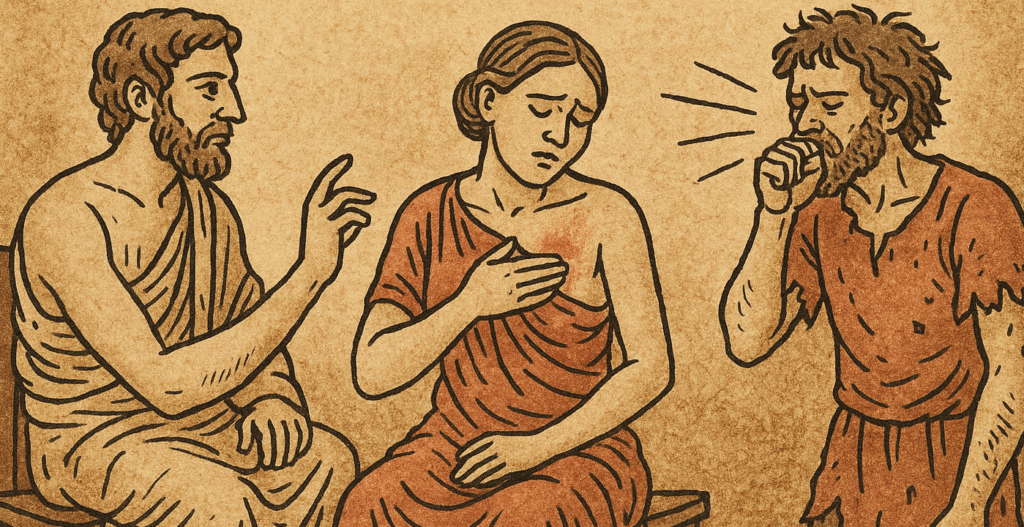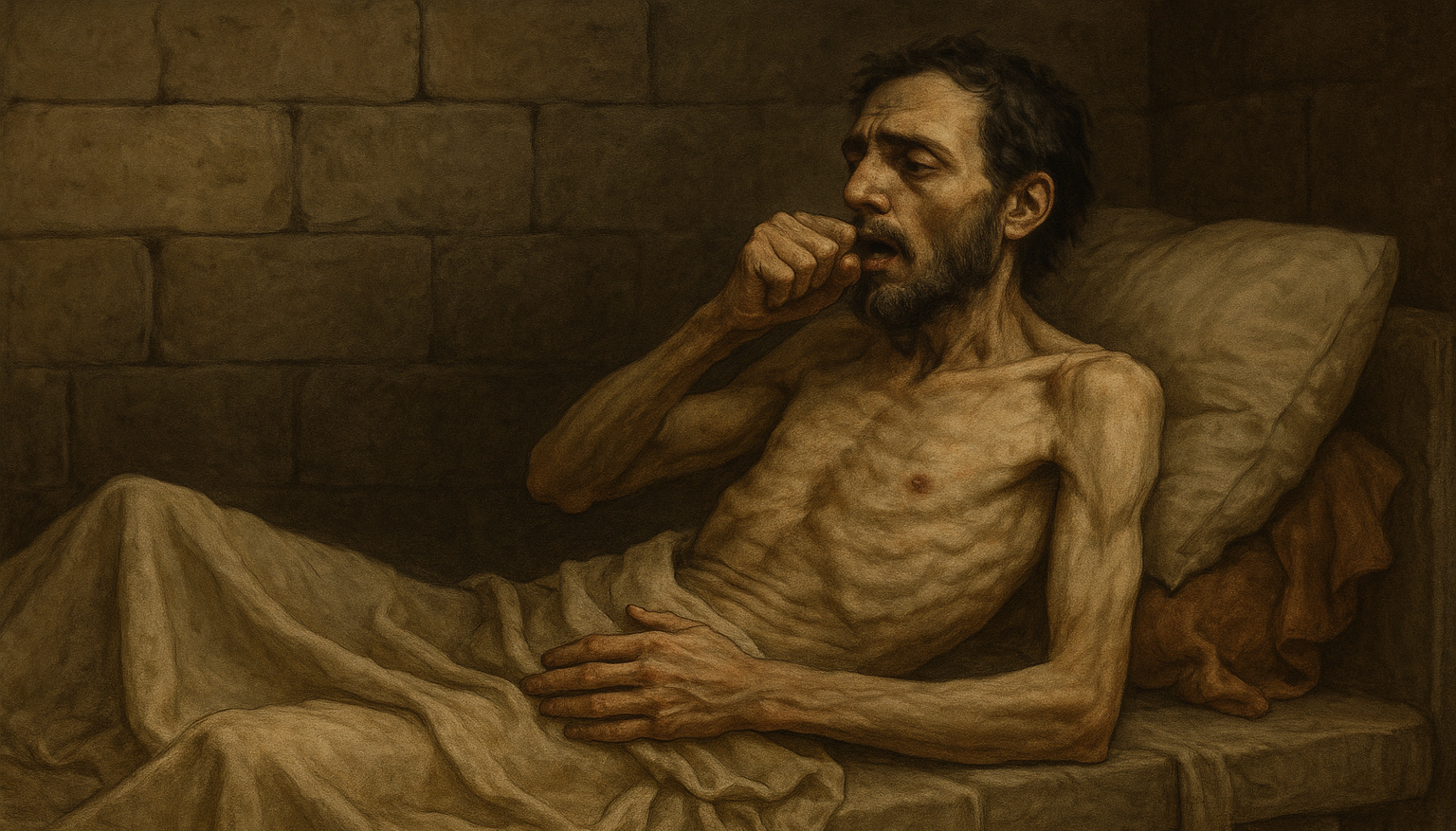Tuberculosis (TB) is a serious infectious disease caused by the bacterium Mycobacterium tuberculosis. It primarily affects the lungs but can also spread to other parts of the body such as the kidneys, spine, and brain. TB has been known since ancient times, yet it remains a major global health challenge today.

Symptoms of Tuberculosis
TB symptoms usually develop slowly and worsen over weeks or months. Common signs include:
- Persistent cough (lasting more than 3 weeks)
- Coughing up blood or sputum
- Chest pain
- Unexplained weight loss
- Fever and night sweats
- Fatigue and weakness
- Loss of appetite
Causes and Transmission
TB is caused by Mycobacterium tuberculosis and spreads mainly through airborne droplets. Risk increases with:
- Close contact with someone who has active TB
- Living in crowded or poorly ventilated spaces
- Weakened immune system (e.g., HIV infection)
- Malnutrition or other chronic illnesses
People with TB may spread the disease through the air when they cough, sneeze, or talk.
Diagnosis and Testing
Doctors use several tests to confirm TB:
- Tuberculin skin test (TST): Detects immune response to TB bacteria.
- Blood tests: More accurate, especially for latent TB.
- Chest X-rays: To look for lung damage.
- Sputum tests: To check for TB bacteria in mucus.

Treatment and Management
TB is treatable but requires a long course of antibiotics, usually lasting 6–9 months. Common medicines include:
- Isoniazid
- Rifampin
- Ethambutol
- Pyrazinamide
Drug-resistant TB requires stronger and longer treatment.
Always consult a doctor before starting any medication, especially antibiotics, to ensure the correct treatment plan and prevent resistance.
Prevention of TB includes
- BCG vaccine – widely given in countries with high TB rates, especially for infants.
- Early diagnosis and treatment – reduces spread.
- Good ventilation – lowers airborne transmission.
- Protective masks and hygiene in healthcare and high-risk settings.
Frequently Asked Questions (FAQ) About Tuberculosis
1. Is tuberculosis contagious?
Yes. Active TB of the lungs or throat can spread through coughing, sneezing, or even talking. Latent TB (when the bacteria are inactive) is not contagious.
2. Can TB be cured?
Yes. With proper and complete antibiotic treatment, TB can be cured. Incomplete treatment increases the risk of drug-resistant TB.
3. How long is TB treatment?
Standard TB treatment lasts 6 to 9 months. Drug-resistant TB may require 12–24 months of therapy.
4. Who is most at risk for TB?
People with weak immune systems (such as those with HIV), malnutrition, or living in crowded conditions are more at risk.
5. Does the BCG vaccine protect adults?
The BCG vaccine is most effective in preventing severe TB in children. Its protection in adults varies and is not always strong, which is why new TB vaccines are being researched.
Tuberculosis remains a serious but treatable infection. With millions still affected each year, global attention continues to focus on prevention, early diagnosis, and effective treatment—especially in the face of rising drug resistance.
Disclaimer: This article is for informational purposes only. It is not a substitute for professional medical advice, diagnosis, or treatment. Always consult a qualified healthcare provider with any health concerns.
Source:
World Health Organization (WHO) — “Tuberculosis”
Centers for Disease Control and Prevention (CDC) — “Signs and Symptoms of Tuberculosis”
Mayo Clinic — “Tuberculosis (TB): Symptoms & Causes”
You may also be interested in 5 proven ways to lower blood pressure naturally


[…] You may also interested in Tuberculosis: symptoms, causes, and treatment […]